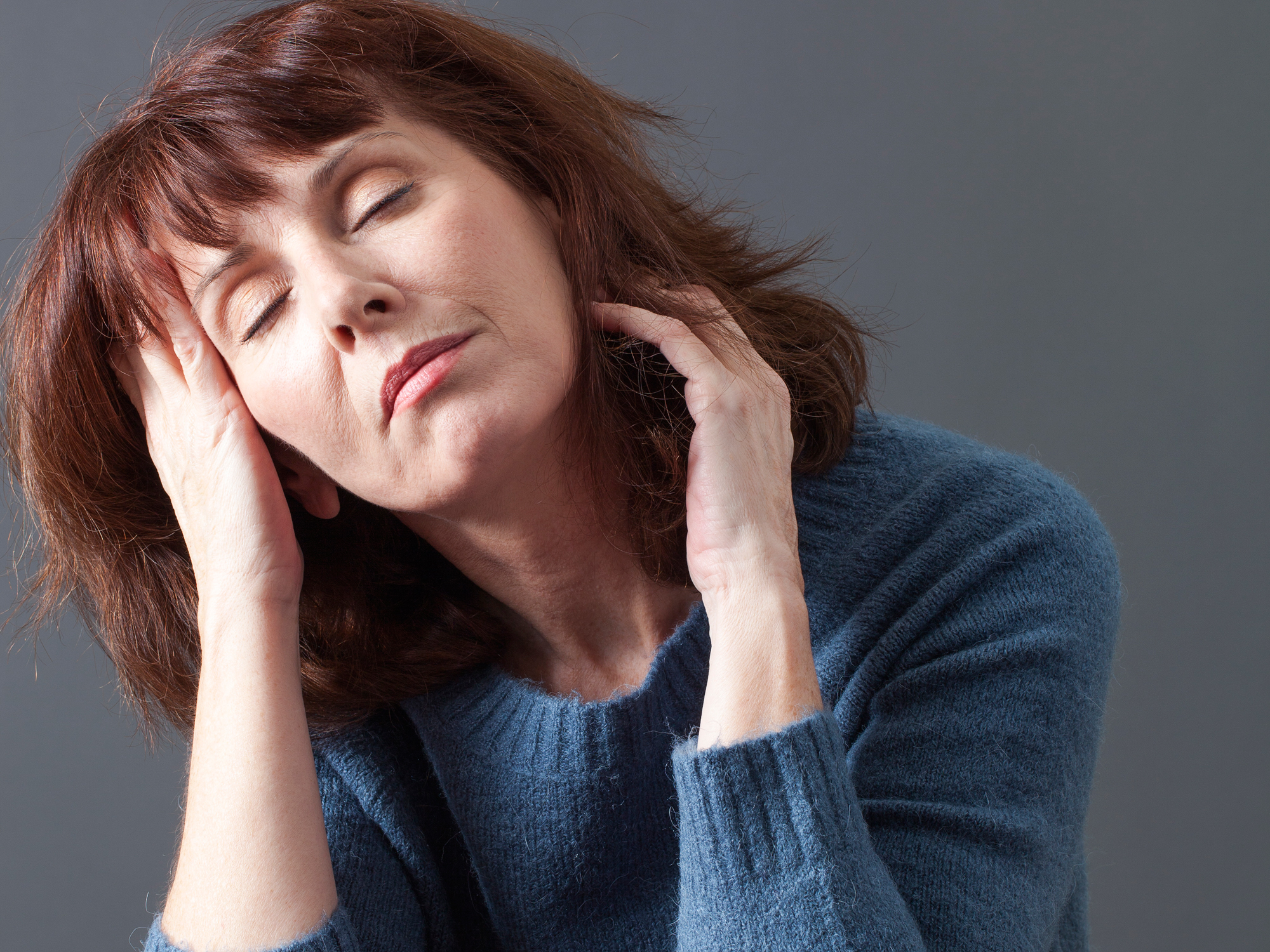Get Easy Health Digest™ in your inbox and don’t miss a thing when you subscribe today. Plus, get the free bonus report, Mother Nature’s Tips, Tricks and Remedies for Cholesterol, Blood Pressure & Blood Sugar as my way of saying welcome to the community!
How to keep menopause from destroying your sleep

Without a good night’s rest, it can feel like you’re sleepwalking through your day, unable to concentrate or handle even the most basic of responsibilities optimally.
Yet, lately it’s seemed like I can’t buy eight hours of sleep to save my life. I have a harder time falling asleep, I can’t seem to stay asleep and even the smallest things disturbs me during the night anymore.
And, to top it off, some times of the month are worse than others.
Yep, that’s right…
Now, as if it’s not enough to live with the fun days around my menstrual cycle, it seems to be having a bigger and bigger impact on my nights as well.
But, what causes these problems with sleep as we move into menopause and is it really necessary to turn to your doctor for a prescription to help you catch some zzz’s?
Here are your answers…
Fluctuating hormone levels equals fluctuating sleep
Perimenopause – that’s the fun term for when you begin the transition into menopause and when you’re hormones start playing hockey with your sleep.
What essentially happens is that you’re body’s hormones begin fluctuating widely… Cue the hot flashes and all of the other fun symptoms you associate with menopause and as an added bonus, you can end up with problems sleeping as well.
Researchers at the Center for Health Sciences at SRI International in Menlo Park, CA, and the University of the Witwatersrand in Johannesburg, South Africa set out to discover why.
And, here’s what they found…
One of the hormones in your body, called progesterone (which is produced after ovulation to prevent your uterine lining from shedding so you can get pregnant) has a significant influence on your sleep.
The problem is that as you approach menopause the levels of this hormone start to shift.
In fact, when the scientists examined women who were beginning the transition to menopause they found that they:
- Experienced more sleep disturbances
- Had a lower percentage of deep sleep
- And, woke up more often
In the days leading up to their periods.
So, does it get better after the periods stop? Unfortunately, the answer is no…
The fact is that when ovulation (along with your periods) stops altogether and your estrogen and progesterone levels bottom out, you can end up with everything from weight gain and joint pain to vaginal dryness and urinary tract infections, in addition to sleep problems.
Are you just stuck then?
Are your days (or should I say nights) of sleeping gone for good?
No and no. Luckily, there is help available — help that doesn’t involve your doctor’s prescription pad and a list of side effects a mile long.
Sleep helpers to get through perimenopause and menopause
The first step is to get regular exercise. In fact, one study found that physical activity resulted in significant improvements in sleep.
And to top it off, other studies have shown the power of exercise to reduce hot flashes in perimenopausal and menopausal women so you won’t have to wake up at night to change the sheets!
Another activity linked to improved sleep in menopause?
Yoga. If you want to get better sleep, it might be time to get into child’s pose and zen out for a while.
It can also help to try a melatonin supplement — 5 mg, about an hour before you’re ready to go to bed. Melatonin works by signaling to your body that the day is over and it’s time to go to bed. You can think of it as setting your body’s internal clock to snooze time.
And, it can also help to take 40 mg of black cohosh — a supplement that’s known for its power against hot flashes.
There are a lot of changes that come with menopause but giving up your sleep doesn’t have to be one of them. Use the tips above to help overcome the hot flashes that keep you awake, balance your hormones and reset your body’s internal clock for a better night’s rest throughout both perimenopause and menopause.
Editor’s note: Did you know that when you take your body from acid to alkaline you can boost your energy, lose weight, soothe digestion, avoid illness and achieve wellness? Click here to discover The Alkaline Secret to Ultimate Vitality and revive your life today!
Sources:
- Hormone fluctuations disrupt sleep of perimenopausal women — Endocrine Society
- Menopause Related Sleep Disorders — Journal of Clinical Sleep Medicine
- Effects of estrogen and progesterone on sleep patterns of female rats — Physiology & Behavior
- Effect of Aerobic Exercise on Depression and Insomnia in Post Menopausal Women — British Journal of Applied Science & Technology
- Exercise during menopause could reduce hot flashes, study says — CNN
- Yoga Could Improve Insomnia In Menopausal Women — Huffington Post
- Black cohosh improves objective sleep in postmenopausal women with sleep disturbance — Climacteric














